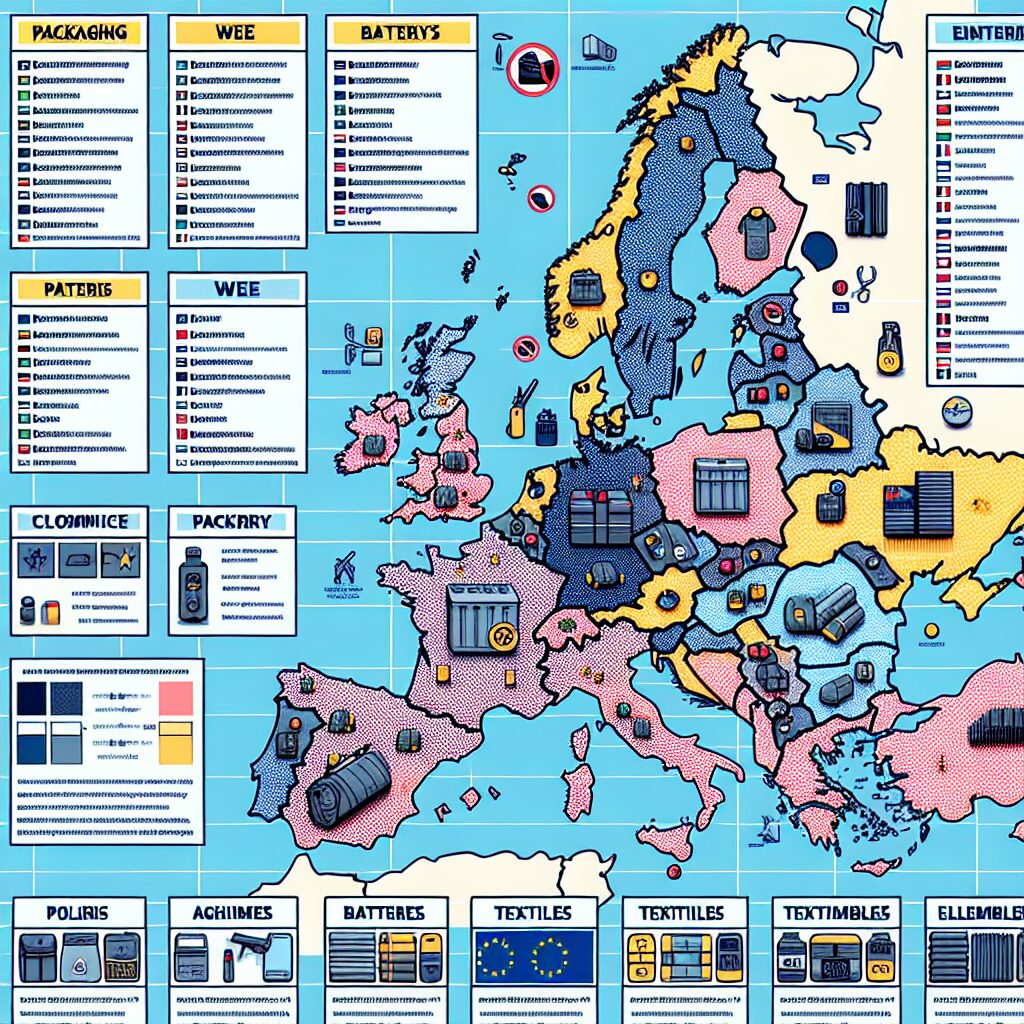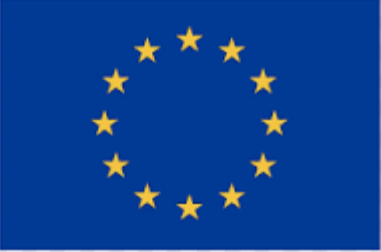About eldris
Epr.eldris.ai leads the EPR sector, in fast, automated, AI Agent EU Complaince. LUCID Packaging, WEEE, and Battery Compliance for Brands, E-Commerce and Service based businesses expanding into the EU.
In This Article
- Determine if your business qualifies as a packaging producer under EPR laws.
- Register with a Producer Responsibility Organisation (PRO) before 2025 deadlines.
- Collect and report packaging data twice yearly, with detailed breakdowns.
- Use EPR software tools to automate data capture and documentation.
- Train your team and integrate compliance into internal workflows now.
Understanding EPR Compliance in the UK
The Regulatory Shift
“EPR compliance UK” refers to the legal obligations placed on producers, importers, and marketplace sellers regarding the lifecycle management of packaging waste. The UK’s environmental regulatory landscape is progressing steadily towards sustainability, mirroring strategies already adopted in the EU. The new Extended Producer Responsibility rules, spearheaded by Defra (the Department for Environment, Food and Rural Affairs), are designed to ensure that businesses who place packaging on the market take full responsibility for its end-of-life management.
Under the EPR mechanism, companies will have to collect and report data on the materials they place on the market, pay packaging fees based on environmental impact, and ensure efficient recycling channels exist. Unlike the older Producer Responsibility Obligations (Packaging Waste) Regulations 2007, the EPR framework broadens the scope of liability to include all qualifying UK-based sellers and significantly enhances the complexity of compliance.
The year 2025 marks a critical turning point, with full-scheme operational rollouts requiring far more rigorous tracking and declarations. Non-compliance is not an option. Businesses who ignore the upcoming requirements risk suspension from platforms, significant fines, and potential criminal penalties.

Who Must Comply in 2025?
Marketplace Sellers and Producer Responsibility
EPR compliance UK applies to a broad spectrum of entities operating within the manufacturing, import, or resale channels. Any business that places packaging (packed goods) on the UK market and meets specified turnover and tonnage thresholds is required to participate. This includes online retailers, producers, wholesalers, and, most notably, sellers using third-party marketplaces such as Amazon, Etsy, and eBay.
From 2024, major e-commerce platforms have started pressing sellers to supply packaging data to enable platform-wide compliance. By 2025, marketplaces themselves will become obligated “deemed producers” under the law when their third-party sellers fail to comply. As a result, platforms will begin enforcing strict rules on EPR documentation to shield themselves from liability.
As a UK-based seller, you are legally bound to ensure that all packaging introduced into the market is accounted for in detail. This includes box dimensions, recycling labels, material composition, and even filler elements like bubble wrap or air cushions.
Learn more about Marketplace Compliance and EPR Regulations
Key Reporting Requirements for Sellers
Packaging Types, Submissions & Accuracy
Once deemed in scope for EPR compliance UK, businesses must prepare for detailed packaging data submissions, typically on a biannual basis. The data must include information about:
- Type of packaging material (e.g., plastic, glass, aluminium, paper/card, wood)
- Packaging function (primary, secondary, shipment, grouped, etc.)
- Weight in kilograms per material type
- Country where the packaging was supplied and discarded
- Information on recyclability and labelling
Accuracy is paramount. Incorrect EPR datasets can attract regulatory scrutiny or push marketplaces to suspend your listings. Many sellers underestimate the level of granularity required. For example, separating paper tape from cardboard box weights is necessary.
In addition to periodic reporting, companies must also be ready to show supporting documentation and calculations if audited. It is advisable to maintain logs, invoices, supply chain labels, and packaging component details for every product sold during the reporting period.
Understand UK EPR packaging obligations
Critical Deadlines Set by Defra
What to Watch for in 2025
Defra’s roadmap for 2025 includes several key EPR compliance UK deadlines that sellers must strictly adhere to. The general requirement is to submit packaging data in two separate half-yearly returns – one for January to June, and another for July to December. These submissions must be completed within several months after the end of each data collection period.
While specific dates may shift slightly, sellers should plan for the following:
- Data collection for January to June 2025 begins 1 January
- Deadline for first submission: 1 October 2025 (approximate)
- Second half-year data collection starts 1 July 2025
- Second submission due early 2026
Missing these reporting windows can invite enforcement mechanisms and create reputational damage with marketplace platforms.
Penalties and Enforcement Risks
What Happens if You Miss Reporting?
EPR compliance UK is not merely a voluntary “green” initiative—it is enforceable by law. Companies found non-compliant face a variety of consequences, depending on the severity and frequency of the violations.
Penalties include fixed monetary fines ranging from a few thousand pounds per offence, per period, as well as variable penalty charges based on packaging volume. In severe cases, Environmental Regulators can initiate legal proceedings, resulting in court injunctions and even criminal charges.
Worse yet, online marketplaces responding to legal pressure may halt your ability to list or sell products. Businesses that are flagged as non-compliant may see their inventory frozen or removed from search results algorithmically. For SMEs, these enforcement actions can obliterate revenue flow overnight.
How Marketplaces Like Amazon Enforce EPR
Listing Blocks and Brand Impact
Amazon, eBay, and other platforms have begun incorporating EPR compliance UK verification steps directly into seller settings. For instance, Amazon mandates the entry of your EPR Registration Number and associated Producer Responsibility Organisation (PRO) details before allowing you to ship goods to customers.
Failure to supply valid documentation typically results in:
- Selling restrictions on affected ASINs (Amazon Standard Identification Numbers)
- Account-wide listing suspensions for non-compliance
- Brand trust deterioration and shopper drop-off
To avoid disruptions, sellers must regularly update packaging data and registration documentation within Amazon Seller Central or related dashboards. Markedly, this requirement will likely expand to include additional mandatory recycling labels and dashboard modules for granular tracking.
Using Automation to Simplify Compliance
EPR Software and AI Agents Explained
EPR compliance UK may feel daunting, but technological solutions now exist to reduce manual overhead. Dedicated EPR software platforms enable sellers to track, map, and calculate packaging metrics automatically. Many integrate directly with Shopify, WooCommerce, or Amazon APIs.
These tools typically offer:
- Automated material classification via SKU mapping
- Data consolidation for biannual submission
- Digital storage of packaging evidence
- Performance dashboards and audit trail generation
Forward-thinking businesses increasingly deploy AI-powered compliance agents to proactively flag errors, verify recyclability data, or estimate fee liabilities. This not only streamlines internal processes but also reduces the risk of regulatory penalties.
Reducing Fees & Optimizing Packaging
Cost Control Strategies
Beyond compliance, EPR also introduces new financial burdens—specifically modulated fees based on environmental impact. Packaging made of non-recyclable or excessive material incurs elevated charges. Therefore, UK sellers can potentially cut costs by investing in sustainable packaging alternatives.
Quick wins include:
- Switching to fully recyclable corrugated cardboard
- Reducing packaging void space with better box sizing
- Eliminating plastic inners or mixed materials
- Consolidating shipments to reduce secondary packaging
Packaging optimisation not only lowers EPR fees but enhances your sustainability brand image—something increasingly important to environmentally conscious shoppers.
Why FBA sellers need an EU representative
Tools to Help UK Sellers Stay Compliant
Top Platforms and EPR Solutions
Several EPR compliance UK service providers now offer UK-centric solutions to navigate regulatory hurdles efficiently. Among the most notable are:
- Valpak: One of the UK’s largest compliance schemes, offering packaging data services and training
- Ecosurety: Specialises in helping sellers report across EPR, WEEE, and batteries
- Greenback: A tech-first solution focused on packaging impact monitoring
- SellerLogic: Offers Amazon seller-specific EPR modules
These platforms assist with EPR registration, packaging data audits, PRO liaison, and even penalty risk assessments. To manage multi-channel complexity, it is strongly recommended you integrate at least one tool aligned with your e-commerce model.
Preparing Your Team for 2025 Compliance
Training and Internal Processes
EPR compliance UK is not a solo responsibility—it touches multiple departments, including procurement, logistics, finance, and customer support. Training staff to understand packaging choices, recyclability, and reporting obligations will lead to better long-term results.
Consider implementing regular staff workshops around UK EPR laws, investing in checklists for packaging engineers, and assigning compliance leads per product line. Also, develop internal Standard Operating Procedures (SOPs) around data assembly and proof-of-evidence format.
Internal readiness empowers frontline staff to ask the right supplier questions, improves reporting accuracy, and avoids last-minute audit panic. The time to act is now—well ahead of the 2025 full scheme activation.
Your Next Steps to Ensure Compliance
The road to EPR compliance UK in 2025 is full of regulatory roadblocks, but with the right tools, processes, and knowledge, marketplace sellers can meet the challenge head-on. Begin by determining your producer status, registering with an appropriate compliance scheme, tracking your packaging types thoroughly, and preparing your IT systems and teams to handle bulk data.
Leverage automation platforms and AI tools to minimise error rates. Stay constantly updated with Defra announcements. Most importantly, embed environmental accountability into your business at every level—not just to meet legal requirements, but to future-proof your operations in an eco-conscious economy.
Great guide on epr-compliance-uk-marketplace-steps-2025 – Community Feedback
What do UK marketplace sellers need to do for EPR compliance in 2025?
UK sellers must register for EPR, accurately report packaging data, pay applicable fees, and implement ongoing reporting. Automation tools can help ensure timely, accurate compliance and reduce errors.
What are the reporting deadlines for UK EPR in 2025?
Key deadlines include regular packaging data submissions throughout 2025 and timely payment of EPR fees, with strict reporting windows set by Defra. Missing deadlines may result in penalties.
Why is EPR compliance essential for Amazon and other marketplaces?
Marketplaces are enforcing EPR rules, often blocking non-compliant sellers. Compliance is mandatory for continued sales and helps brands demonstrate environmental responsibility and avoid disruptions.










